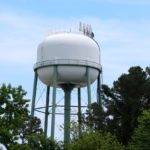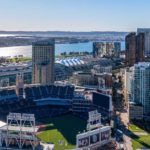A Permit Expediters Guide to New Jersey

The process of obtaining a building permit in New Jersey can be complicated and confusing. It involves numerous different stakeholders, a multi-step approval process, and can include a number of different external municipal bodies in certain cases.
In our latest guide, we sat down with Chris Birdyshaw, who heads up sales for the Milrose Consultants New Jersey office, to get a breakdown of the cases in which a permit is typically required in New Jersey, the standard steps to take to obtain a permit, and when approval from other bodies is required. Additionally, he also explained how utilizing an experienced permit expediter can help Garden State builders save time and money through strategic planning that allows the municipal permit approval process to run as seamlessly as possible.
When do you need a permit?
Building permits are handled at the local level in New Jersey, and different municipalities tend to have slightly different requirements. However, you must seek approval from your respective building’s department whenever construction involves scope related to but not limited to structural, building, mechanical, plumbing, electric, fire alarm, and sprinkler systems.
Projects such as painting, flooring, or moving furniture that is not fixed to the ground or wall, do not usually require permits but it is strongly advised to always check in with your permit expediter so they can determine whether or not the municipality will consider the work exempt.
How do you obtain a permit?
Depending on the complexity of the project, the first step may be to obtaining planning and zoning board approvals. This involves going before the planning and approval board with your drawings before a full application to the buildings department can be made.
Once prior approvals have been granted, you must submit a permit application to the appropriate Construction office within the Authority Having Jurisdiction (AHJ). Applications will include a multitude of required items such as drawings, technical forms, and appropriate municipal fees. For new construction, additional requirements may apply.
The project will then be subject to a zoning review before moving on to a full project DOB construction review. Depending on the municipality, the process can take anywhere from 4-8 weeks before approval is granted. New buildings tend to take longer — you can expect to wait around 8-12 weeks before receiving a decision in such cases.
The permitting process is mostly the same across the state, but there are some important differences between each municipality. Some jurisdictions have slightly longer and more complicated processes due to variables such as the size of the municipality, Historical elements, prior approval process, current submittal and development activity, or even governing authority among licensing needs between local and state.
NJ’s governmental agencies
Although most building permits are issued at the local level, in some cases, external authorities can be involved. The New Jersey Department of Community Affairs (NJDCA) is a statewide government body that, among other functions, provides guidance on building codes to local governments, community organizations, businesses, and individuals.
There are three building classifications for which the buildings department is required to have certifications to grant approval. These are:
- HHS (Highrise or Hazardous)
- ICA (Industrial and Commercial)
- RCS (Residential and Small Commercial)
If a construction project falls under a category for which the relevant municipality doesn’t have a subcode official with the appropriate license/certification, then the application will be transferred to the NJDCA, which will oversee the remainder of the process.
Other projects automatically go to the NJDCA. These include:
- Electric-generating stations
- Incineration plants
- Solid waste disposal plants
- Casinos
- Buildings intended to hold human remains
- Healthcare facilities
- Public schools
- State-owned buildings
- Large stadiums or arenas
The New Jersey Sports and Exposition Authority (NJSEA), formerly known as the Meadowlands Commission, manages construction projects along the Hackensack River and Meadowlands area, which includes 14 different municipalities. Proposed projects within these areas will first go to the NJSEA for approval.
How to streamline the NJ permit approvals process
Most people are not familiar enough with the local building codes, zoning laws, and permitting regulations throughout New Jersey’s 21 counties to easily navigate it, and they can become overwhelmed by the amount of correspondence that’s required between the many various stakeholders. Our team has helped save clients huge amounts of time, stress, and costs by leveraging their vast experience in building strategy against project goals and aligning with municipal agencies to guide it to successful completion.
Our partners at Milrose Consultants have more than 30 years of experience advising on municipal compliance among New Jersey’s rules and regulations for our clients. They understand all of the intricacies and nuances of each municipality’s permitting process, so they are best placed to advise clients on the right way to manage and ultimately complete their projects.
The permit approval process can be complex and cumbersome, so it is important to have the right team of experts on your side to ensure you get approval for your project. Contact Chris Birdyshaw to learn more about our New Jersey permitting services.




